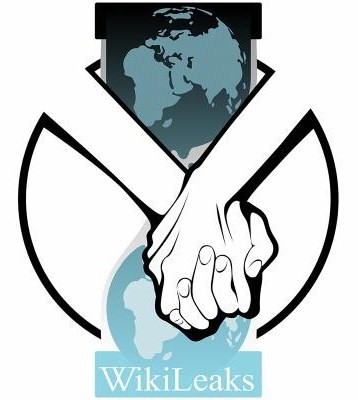Peter King (R-NY), chair of the US House Committee on Homeland Security, yesterday reintroduced legislation that would extend the definition of espionage to include publishing the names of sources who collaborate with the US military or intelligence services.
King had proposed similar legislation in 2010. Last week three members of the Senate Committee on Homeland Security, led by chairman Joe Lieberman (I-CT), reintroduced a similar bill, known as the SHIELD Act. In US congressional parlance, SHIELD appears to mean "Securing human intelligence and enforcing lawful dissemination."
Many students of the First Amendment have pointed out the dangers to journalism and publishing in the US if the definition of espionage (traditionally understood to involve intentional and interested transmission of information to a foreign power) were to be so broadened. The ACLU argues:
 Julian Assange spoke today to a gathering in Melbourne organized by the WikiLeaks Defence Committee and the Australian Media, Entertainment and Arts Alliance, who presented Assange (via his lawyer) with his membership card in the union as a journalist.
Julian Assange spoke today to a gathering in Melbourne organized by the WikiLeaks Defence Committee and the Australian Media, Entertainment and Arts Alliance, who presented Assange (via his lawyer) with his membership card in the union as a journalist.
His filmed address, played to a free-speech forum at Federation Square in Melbourne, touched on a number of WikiLeaks' guiding principles as well as on immediate political pressures on the organization and on Assange himself. Repeatedly, he united those two concerns, principled and practical:
We at WikiLeaks recognize the difference between secrecy and privacy. ... We believe in transparent power, not in transparent people.
Via @Asher_Wolf and @joycelowenstein on Twitter, and Greg Mitchell at The Nation
This evening two of the editors who worked with WikiLeaks on the publication of the Afghan and Iraq war logs and the diplomatic cables, Alan Rusbridger of the Guardian and Bill Keller of the New York Times, will discuss their interactions with WikiLeaks on a panel hosted by the Columbia University Journalism School in New York City.
Jack Goldsmith, the former assistant attorney general who raised alarms within the US Department of Justice about DoJ legal opinions on torture and now a Harvard University law professor, will join the panel as discussant. The panel will be moderated by Emily Bell, director of the Tow Center for Digital Journalism at CJS.
In a recent tweet, WikiLeaks referred to some members of the panel as its "detractors."
The panel will be livestreamed at the CJS site at 7 pm EST.
Mark Stephens (@MarksLarks), Julian Assange's London-based solicitor, tweets today:
Biographies of the blind. Assange films & books: puffery by people without knowledge of his life http://tiny.cc/c08ut
As well as the biopics discussed in the Independent report and Daniel Domscheit-Berg's book, a growing number of instant books about WikiLeaks have been announced for publication in advance of Assange's autobiography, including a few that may be of substance: Heather Brooke's report on her dealings with the Guardian over a leaked trove of WikiLeaks documents, the Guardian's own version of their history with Assange and WikiLeaks, and Greg Mitchell's forthcoming narrative of WikiLeaks since last April (see his continuing work on WikiLeaks news at The Nation).
A US court decision appears to draw a line between advocacy and journalism that could have dangerous consequences for other publishers and artists.
A federal appeals court has ruled that Joe Berlinger, a filmmaker who was ordered to hand over footage from his 2009 documentary “Crude” to the Chevron Corporation, cannot invoke a journalist’s privilege in refusing to do so because his work does not constitute an act of independent reporting. ...
In a decision issued on Thursday concerning Mr. Berlinger’s contention that he was protected as a journalist from being compelled to share his materials, the Second Circuit judges said they did not find the argument, which his lawyers presented to the court in July, to be persuasive.
“Given all the circumstances of the making of the film,” the judges wrote, “as reasonably found by the district court, particularly the fact that Berlinger’s making of the film was solicited by the plaintiffs in the Lago Agrio litigation for the purpose of telling their story, and that changes to the film were made at their instance, Berlinger failed to carry his burden of showing that he collected information for the purpose of independent reporting and commentary.”
Via @jeffjarvis on Twitter
Theme by Danetsoft and Danang Probo Sayekti inspired by Maksimer